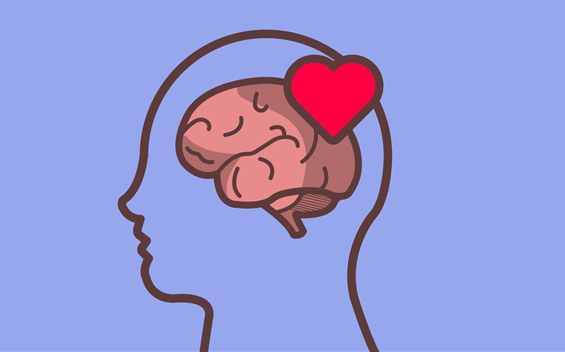Many people suffer from emotional illiteracy. They are trained in the field of various skills, have endless credentials and diplomas, but do the same emotional management as a three-year-old, this learning does not come from the factory and is, voluntary or not, a prominent topic on which we need to devote more resources.
Most of us know the principles of good physical health, i. e. a balanced and as natural diet as possible, exercise, sleep every night for at least 7 to 9 hours and perform regular medical checkups to make sure everything is okay.
“When you listen empathy to someone else, you give them a psychological air. “Stephen R. Covey-
However, if there is one thing that we neglect almost alarmingly is what is contained in our ears: the brain, however, we do not mean all nerve cells, structures and convolutions, we must focus our attention on indicators. of our emotional health, that is, the ability to feel life and relationships, the state of that ability to learn, control and change our mood and that of others.
Human beings are more than a series of linguistic, mathematical or technological skills, we are above all social and emotional beings, dimensions often overlooked or even undervalued in educational institutions, because, let us admit, it is of little use to know how to solve a second-degree equation if we are unable, for example, to communicate effectively and sympathize with those around us.
We know that the term illiteracy has a negative connotation, however, we cannot call this obvious psychosocial reality in another way, let’s take an example: we speak a lot of good about transforming leaders, people who can energize an organization through its good. managing emotional intelligence, motivation, your gift for impacting others and creating environments where people can use their creativity.
Sometimes they sell ideas that actually shine through their absence, so it is very common to meet executives or business leaders who are not only unable to inspire others, but with a lack of ability to control their emotions, their frustration, They are like 3-year-olds irritated by not getting what they want, completely located in the egocentric thinking defined by Piaget in their day.
However, let’s see what dimensions characterize emotional illiteracy
In addition, there is a fact that is no less important to remember: emotional illiteracy, that is, the lack of psychological resources and emotional mechanisms to better manage dimensions such as sadness, anger, fear or disappointment, makes us much more vulnerable to a series. mental disorders.
Thus, conditions such as depression or chronic anxiety states are very common in profiles with little or no ability to manage internal states.
We know it’s already like a motto: “You have to teach emotional intelligence, you have to form in these skills, you have to be more capable in terms of emotions. “We listened to it until we could no longer, read books, took courses and said yes with our heads every time we remember the importance of having greater competence in this skill.
However, there are still gaps. Thus, while in some educational programs in some schools this goal already appears, we cannot ignore something equal or more important, before teachers educate children in the field of their thoughts and emotions, they must also be educated in advance.
“Your intellect may be confused, but your emotions will never lie to you. “- Roger Ebert-
Many times we have reached our adult stage with a world of insecurity, we also wake up every day aware that we lack tools to control our emotions, as well as certain skills to better cope with adversity, so if we do not start with ourselves first by becoming aware of our emotional illiteracy, we will hardly have talent to motivate minors , to train them in empathy, self-affirmation or social skills.
Good emotional literacy? It brings us great benefits. So, one thing we learned in the first place is that each emotion has its own space and utility, which differentiates negative emotions.
Therefore, emotions cannot be avoided, we have to face them to know what they want to tell us, is it a sensational form of self-knowledge that gives us strength, which offers our vision a wider spectrum?And at the same time flexible. So let’s not give up or neglect the need to be up-to-date on emotions. Are we facing the inner world where we can recognize, express, manage and transform feelings so that they flow for us and not against us?

